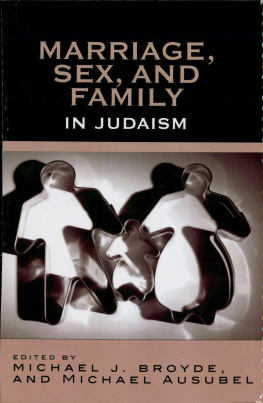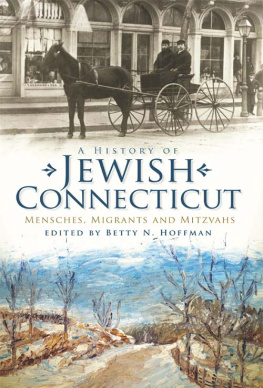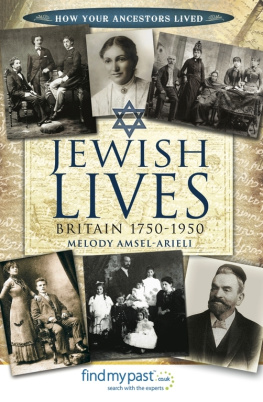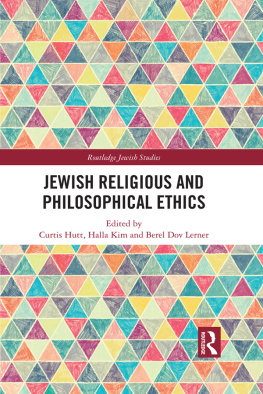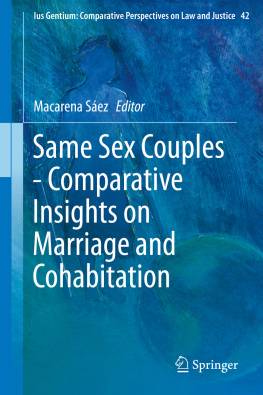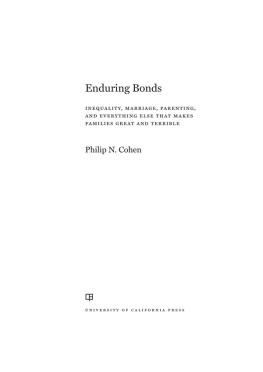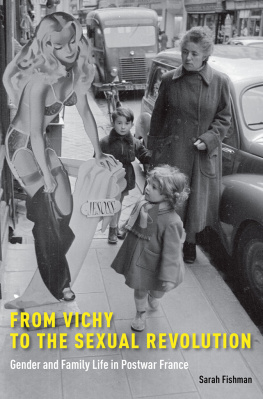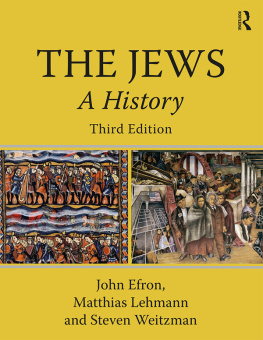HBI Series on Jewish Women
Shulamit Reinharz, General Editor
Sylvia Barack Fishman, Associate Editor
The HBI Series on Jewish Women, created by the Hadassah-Brandeis Institute, publishes a wide range of books by and about Jewish women in diverse contexts and time periods. Of interest to scholars and the educated public, the HBI Series on Jewish Women fills major gaps in Jewish Studies and in Women and Gender Studies as well as their intersection.
The HBI Series on Jewish Women is supported by a generous gift from Dr. Laura S. Schor.
For the complete list of books that are available in this series, please see www.upne.com
Sylvia Barack Fishman, editor, Love, Marriage, and Jewish Families: Paradoxes of a Social Revolution
Cynthia Kaplan Shamash, The Strangers We Became: Lessons in Exile from One of Iraqs Last Jews
Marcia Falk, The Days Between: Blessings, Poems, and Directions of the Heart for the Jewish High Holiday Season
Inbar Raveh, Feminist Rereadings of Rabbinic Literature
Laura Silver, The Book of Knish: In Search of the Jewish Soul Food
Sharon R. Siegel, A Jewish Ceremony for Newborn Girls: The Torahs Covenant Affirmed
Laura S. Schor, The Best School in Jerusalem: Annie Landaus School for Girls, 19001960
Federica K. Clementi, Holocaust Mothers and Daughters: Family, History, and Trauma
Elana Maryles Sztokman and Chaya Rosenfeld Gorsetman, Educating in the Divine Image: Gender Issues in Orthodox Jewish Day Schools
Ilana Szobel, A Poetics of Trauma: The Work of Dahlia Ravikovitch
Susan M. Weiss and Netty C. Gross-Horowitz, Marriage and Divorce in the Jewish State: Israels Civil War
Ronit Irshai, Fertility and Jewish Law: Feminist Perspectives on Orthodox Responsa Literature
Elana Maryles Sztokman, The Mens Section: Orthodox Jewish Men in an Egalitarian World
Sharon Faye Koren, Forsaken: The Menstruant in Medieval Jewish Mysticism
Sonja M. Hedgepeth and Rochelle G. Saidel, editors, Sexual Violence against Jewish Women during the Holocaust
Julia R. Lieberman, editor, Sephardi Family Life in the Early Modern Diaspora
Derek Rubin, editor, Promised Lands: New Jewish American Fiction on Longing and Belonging
Carol K. Ingall, editor, The Women Who Reconstructed American Jewish Education: 19101965
Gaby Brimmer and Elena Poniatowska, Gaby Brimmer: An Autobiography in Three Voices
Harriet Hartman and Moshe Hartman, Gender and American Jews: Patterns in Work, Education, and Family in Contemporary Life
Dvora E. Weisberg, Levirate Marriage and the Family in Ancient Judaism
Ellen M. Umansky and Dianne Ashton, editors, Four Centuries of Jewish Womens Spirituality: A Sourcebook
Carole S. Kessner, Marie Syrkin: Values Beyond the Self
Ruth Kark, Margalit Shilo, and Galit Hasan-Rokem, editors, Jewish Women in Pre-State Israel: Life History, Politics, and Culture
Love, Marriage, and Jewish Families
Paradoxes of a Social Revolution

Sylvia Barack Fishman, editor
Brandeis University Press
Waltham, Massachusetts
Brandeis University Press
An imprint of University Press of New England
www.upne.com
2015 Brandeis University
All rights reserved
For permission to reproduce any of the material in this book, contact Permissions, University Press of New England, One Court Street, Suite 250, Lebanon NH 03766; or visit www.upne.com
Library of Congress Cataloging-in-Publication Data
Love, marriage, and Jewish families : paradoxes of a social revolution / Sylvia Barack Fishman, editor.
1 online resource. (HBI series on Jewish women)
Includes bibliographical references and index.
Description based on print version record and CIP data provided by publisher; resource not viewed.
ISBN 978-1-61168-861-0 (epub, pdf & mobi) ISBN 978-1-61168-859-7 (cloth : alk. paper)
1. Jewish families. 2. MarriageReligious aspects. 3. FamiliesReligious aspects. 4. Jewish way of life. 5. JewsSocial conditions21st century. 6. JewsSocial life and customs21st century. I. Fishman, Sylvia Barack, 1942 editor.
HQ 525. J4
306.85'089924dc232015036167
For my grandchildren,
Joshua Samuel,
Ari Shai,
Leor Barak,
Netanel Nehemiah,
Ayelet Rina,
Yonina Leah
Tzetzaei tzetzaeinu
Foreword
The HBI (Hadassah-Brandeis Institute) Series on Jewish Women is pleased to present this volume, edited and with an Introduction by the HBI co-director, Sylvia Barack Fishman. The Introduction and thirteen essays that comprise Love, Marriage and Jewish Families are fascinating and illustrate the continuous morphing of family forms among generations and contexts. Take for example the 1960s Broadway musical, Fiddler on the Roof, which reworks Sholom Aleichems depiction of the changing Jewish family in the Russian Pale of Settlement in the early twentieth century. Golde, the plays middle-aged wife and mother, responds to her husbands question, Do you Love Me? with an answer that would not pass muster today. For twenty-five years Ive washed your clothes, cooked your meals, cleaned your house, given you children, milked your cow... But Tevyeobserving his daughters opting for love over dutywants more than Goldes dutiful performance of household chores; he wants love and he wants her to express it.
Nowadays, love seems to be what everyone wants, including Jews. As modern society has focused on individualism, on each person considering herself or himself a unique person and not just a member of a group, that individuality requires and deserves the unique devotion to the individual that we call love. How love emerges (or doesnt) in or before a relationship develops remains a mystery. Some people call it chemistry. And for those people who do not experience it, life can become frustratingor not.
Given the new requirement that one must find the perfect partner to match oneself as a unique individual, it is not surprising that single Americans make up more than half the adult population, 50.2 percent, up from 37 percent in 1976 when the government started keeping track, according to Bureau of Labor statistics as reported in Bloomberg (Miller, 2014). This figure reflects a decrease in family-based and intergenerational households. As the chapters in this book demonstrate, singles comprise a larger segment of the American Jewish community than in past generations, as well. Nevertheless, the majority (not the totality) of highly educated, affluent Americansthe group to which most American Jews belongdo marry eventually, and according to the most recent research, the majority of these marriages do not end in divorce. At the same time, the percentage of Jews cohabiting also has risen. Marriage is no longer the only love relation of choice.
As is widely understood among educators watching enrollments diminish in Jewish educational settings, younger American Jews have fewer children now than their counterparts did in the past. For people who worry about the negative environmental impact of a growing population, the decline in the birth rate may be good news. But for Jews who are concerned with the shifting demographics of the Jewish population, decline in family size is a major challenge and makes Jewish continuity a precarious proposition. Some of this decrease in family size reflects conscious choice. In other cases, Jews need assistance in having children for various medical or social reasons. To mitigate this handicap, in the winter 20142015 issue of


